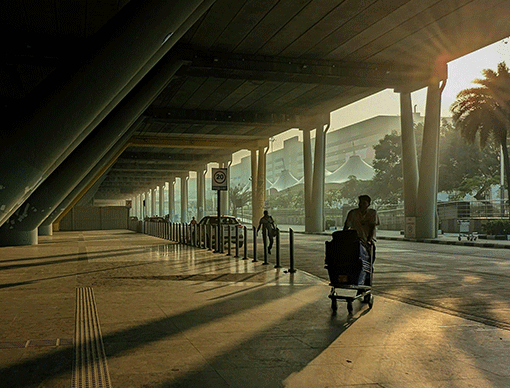Research Insights
Emerging Technologies are Driving Next Generation Dynamic Packaging Systems
Emerging Technologies are Driving Next Generation Dynamic Packaging Systems
- Published:
- November 2004
- Analyst:
- David Juman

By Norman L. Rose
Within the broad category of vacation packages a single technology has surfaced as the killer app for the leisure travel industry: dynamic packaging. To reach its true potential, the underlying technology for dynamic packaging must evolve to support a new, "just-in-time," Internet-based leisure distribution platform. At a time when nearly one in four online travel buyers have bought air, car and/or hotel in a single purchase, the emergence of new technology to drive dynamic packaging is indeed timely. Selling Complex Leisure Travel Online: Focus on Dynamic Packaging Technology, a new study from Travel Tech Consulting Inc. and Phocuswright Inc., delves into the technology and strategies behind dynamic packaging.
To understand this technology and its impact, a definition of "dynamic packaging" must be established. The term is used in different contexts by different vendors. There is no dispute that dynamic packaging involves assembling components into a single priced itinerary, but it is not clear what actually makes a package dynamic. Are there common technologies being deployed to achieve a balance between consumer preferences and supplier marketing goals? Is there a difference between dynamic pricing and dynamic packaging? What technologies are emerging that will drive the next generation of dynamic packaging engines?
To help the industry answer these questions, the joint study paints a clear picture of the underlying technology trends and business dynamics impacting the next generation of dynamic packaging engines.
Dynamic Packaging Emerges as the Consumer's Choice for Vacation Planning
Phocuswright's consumer research clearly shows that most consumers prefer to create their own packages rather than purchase pre-packaged tours. Nearly one-fourth of all online travel buyers have bought some type of air, car and/or hotel combination in a single purchase; nearly 80% of those buyers have created the package themselves. This underscores the importance of dynamic packaging in directing what online travelers purchase through online agency and supplier Web sites, as well as the perceived value of creating a package verses purchasing a pre-packaged one.
These numbers are likely to increase as applications driving dynamic packaging on online travel agency and supplier Web sites become more sophisticated and offer more and more options. Key features must include the ability to:
- Seamlessly connect to multiple sources of supply;
- Manage "just-in-time" package creation through complex business logic; and
- Provide a platform for the consumer to create customized vacations online that fit their personal preferences and reflect their value to the supplier and intermediary.
The impact of dynamic packaging is felt throughout the travel value chain. Traditional tour operators, traditional travel agencies, online travel agencies and suppliers must react to the development of more efficient and effective tools for consumer-built packages. But each segment has its own set of challenges and opportunities.
Traditional Tour Operators
- Traditionally static packages do not match the desire of consumers to customize their own vacations.
- The technology used to manage traditional tour operator inventory is often based on mini-computer technology that lacks the capabilities to provide robust online vacation planning.
- These companies face an ever increasing threat on their core business unless they embrace the new emerging architecture for dynamic packaging.
Traditional Travel Agencies
- With standard commission cuts, many travel agencies have targeted cruises and tour packages as an important revenue stream.
- Some agencies are embracing the wholesale/retail model.
- Dynamic packaging technology is essentially trying to duplicate the offline agency-customer interaction by tracking customer preferences and providing flexible itinerary options via the Web; however, most traditional travel agencies currently have no way to electronically capture the offline consumer process for future use.
Online Travel Agencies
- Online agencies have quickly embraced packaging as a means to bolster margins and increase volume.
- These companies essentially pioneered the concept of a combined retailer/wholesaler.
- Creating the next generation dynamic packaging engine represents a key battleground between the major online agencies.
Suppliers
- Many suppliers have launched dynamic vacation planning capabilities on their sites, either through private label agreements with online travel agency systems or by using technology from third party software companies.
- Supplier-driven dynamic packaging initiatives provide a new way to enhance the suppliers' relationship with their best customers.
- Suppliers, moving beyond outsourced and third-party solutions, must now seek to capture the lucrative vacation planning market while ensuring that the customer stays brand loyal.
Selling Complex Leisure Travel Online: Focus on Dynamic Packaging Technology provides over 40 pages of detailed analysis on the underlying technologies needed to drive next generation dynamic packaging systems. It includes 13 tables and charts and 13 company spotlights.











